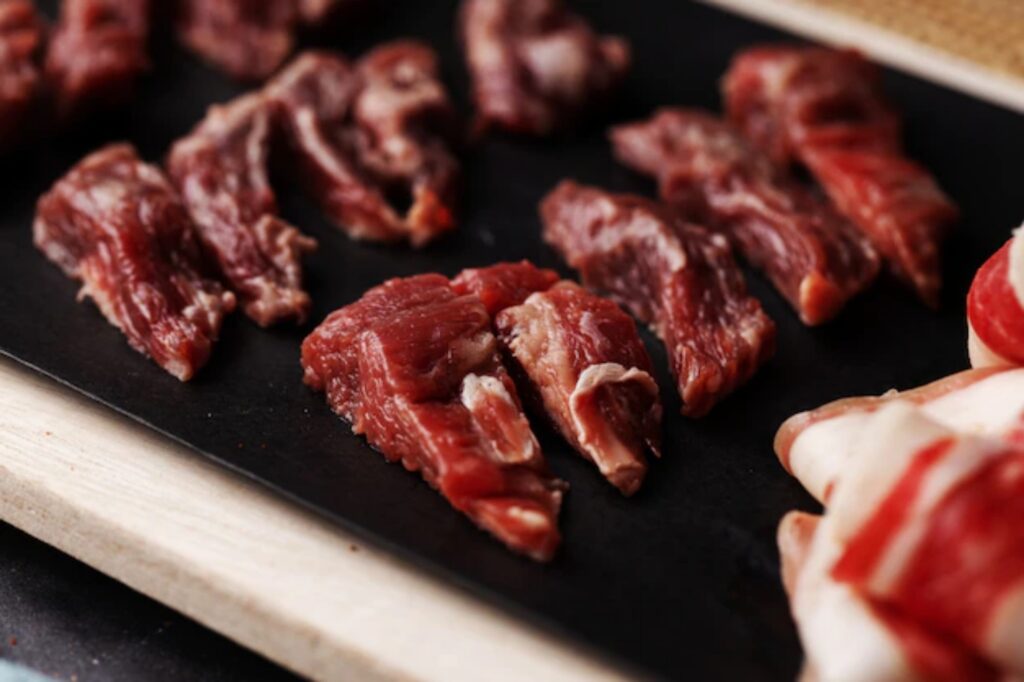8 Foods That Cause Cancer and That We Should Stop Eating: What They are
Cancer can be attributed to various factors, including genetics, smoking, radiation exposure, lifestyle, and more. But did you know that some foods we commonly consume daily can significantly increase the risk of developing cancer? In fact, an unhealthy diet and lack of physical activity can have a detrimental impact on our overall health. In this article, we aim to highlight a list of particularly unhelpful foods, especially when consumed excessively.

The World Cancer Research Fund, a charity dedicated to preventing cancer and studying its links to diet and exercise, reports that 20% of cancer cases in America are associated with unbalanced and unhealthy diets. Let’s now explore which foods are best avoided.
Processed red meats

A study published in the Nutrition and Cancer Journal revealed that overconsumption of red meat can elevate the risk of colorectal cancer. This is due to many harmful additives and a high salt content, often found in processed meat products like sausages.
If you’re unwilling to eliminate red meat entirely from your diet, an alternative is to choose meat from animals raised on a diet of grass and hay exclusively.
Hydrogenated oils
Hydrogenated oils should be replaced with classic olive oil, which can raise the risk of colorectal, breast, and prostate cancer. This increased risk is correlated to the excessive presence of omega-6 fatty acids, which can promote cell damage in the body. Conversely, olive oil offers healthier fats and is a better option for overall well-being.
White flour
Refined flour, with its high carbohydrate content, is not very beneficial for our health. Excessive consumption of refined flour can potentially increase the risk of breast cancer in women and lead to elevated blood sugar levels. We advise replacing white flour with other flours, such as quinoa, whole wheat, barley, and almonds.

Microwave popcorn
Microwave popcorn is certainly very good and convenient to make, but did you know that it can be harmful to our health? Yes, their consumption can significantly increase the risk of contracting bladder or kidney cancer. This risk is related to the presence of perfluorooctanoic acid (PFOA), a chemical compound found in the bags, as well as the high content of genetically modified organisms (GMOs) like propyl gallate in some microwave popcorn products. These factors are considered potential contributors to health concerns.
Farmed salmon
Studies published in Science Magazine have indicated that farmed salmon can harm human health more than wild salmon. This is due to the high presence of chemicals that can cause cancer, including mercury, toxaphene, dioxins, and polychlorinated biphenyls (PCBs).
French fries
The International Journal of Cancer stated that French fries contain acrylamide, capable of triggering ovarian, prostate, breast, and digestive tract cancer. Furthermore, French fries are not considered a healthy food choice due to their high calorie, fat, and salt content. Excessive fries consumption can contribute to obesity, hypertension, and high cholesterol. The best way to consume chips is to use olive oil and buy organic potatoes.

Smoked food
Smoked foods can potentially increase the risk of cancer due to the smoking process, which can leave behind harmful toxins. Additionally, these foods often contain nitrates and preservatives, further raising the possibility of developing cancer.
Refined and sugary foods
An excessive intake of refined and sugary foods is unfavorable for our health as it can lead to increased insulin production, encouraging the growth of cancer cells. A study published in an American magazine in 2006 highlighted that individuals with a high sugar intake were more likely to develop pancreatic cancer. This underscores the importance of maintaining a balanced and mindful diet to reduce potential health risks.





